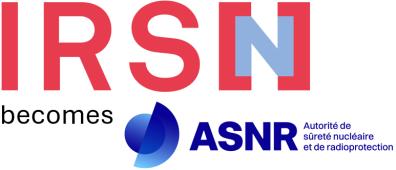Considerations on the performance and reliability of passive safety systems for nuclear reactors
In a new report, IRSN presents the main characteristics of passive safety systems and outlines the main difficulties associated with assessing the performance and reliability of passive safety systems for nuclear reactors, as well as priority research areas to be developed in order to overcome these difficulties.
Pressurized water reactors currently operating in France are equipped with active safety systems requiring a power source, such as an electrical power supply, and also include passive safety features (nuclear fission reaction control and shutdown rods, hydrogen recombiners, etc.).
Certain nuclear reactor designs currently under construction or development make more extensive use of passive safety systems in order to bring the reactor to a safe shutdown state and maintain this state for a long period of time without need for human intervention and with limited reliance on support functions.
IRSN considerations to date on passive safety systems have led to the identification of a number of intrinsic difficulties, particularly concerning the performance and reliability assessment of such systems.
Further research is required in order to properly assess the performance and reliability of passive safety systems to be implemented in new reactor designs. Initial considerations have already been identified as part of IRSN's scientific strategy, with emphasis on necessary understanding of physical phenomena influencing the operation of passive safety systems, necessary simulation capabilities for such phenomena, and necessary testing for validation of simulation software.
IRSN pursues this research within the framework of joint actions with foreign organisations so as to ensure fruitful exchanges and benefit from available knowledge.
Download IRSN report on passive safety systems for nuclear reactors (PDF)
